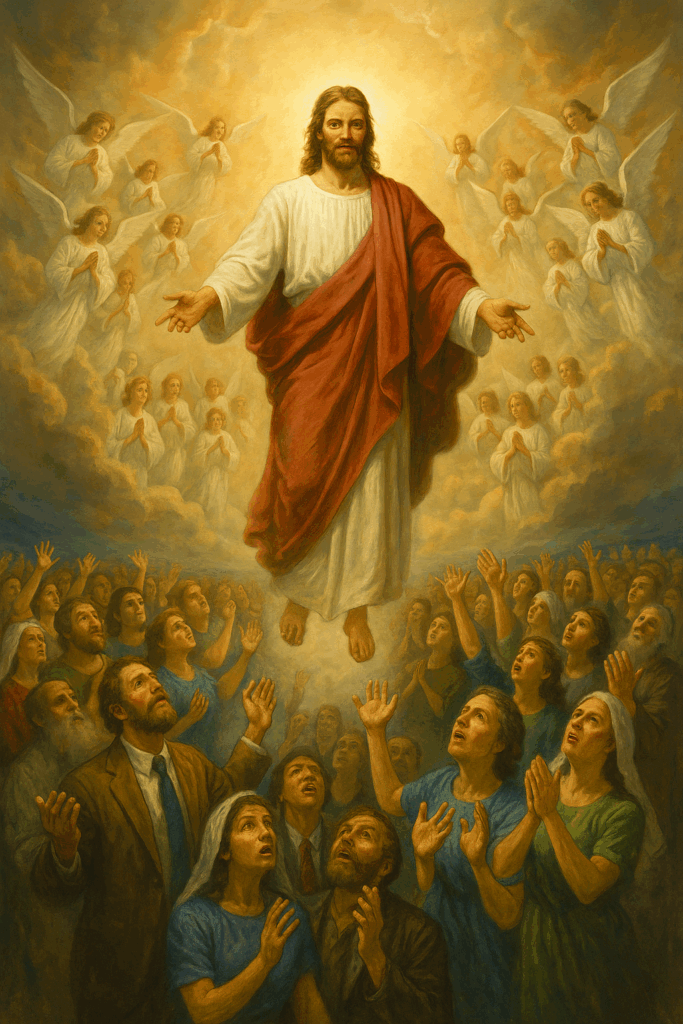This topic is closely related to the doctrine of the Trinity.
When we set aside the doctrine of the Trinity, this question alone can already seem provocative to some.
To answer it properly, certain foundations must be understood.
From God’s perspective, there is only one reasonable form of government:
God is the measure of all things, because He is love.
This form of government is called theocracy.
When the ruling role is held by a human, we call it monarchy.
This form of government was long practised and widespread on earth.

The structure is identical and therefore clearly comparable:
If the king sent out an ambassador, this person was treated as if he were the king himself.
Whoever insulted the ambassador had insulted the king. No distinction was made.
An ambassador of the king had to either be officially introduced by the king, or possess something that would identify him.
If God empowers someone and sends him to us, that person is to be treated as God Himself.
Jesus was marked by His miracles, and as He Himself said, He was sent by God.
Who else can give sight to the blind or raise the dead?
Only someone who has been empowered by God.
The prophet Elijah, similar to Jesus, also performed miracles.
However, Elijah did not perform them on such a great scale as Jesus did.
At the very latest, when Jesus was resurrected by God, it became clear with what authority He had been here.
Let us now look at a few Bible passages:
“The next day John seeth Jesus coming unto him, and saith, Behold the Lamb of God, which taketh away the sin of the world.
This is he of whom I said, After me cometh a man which is preferred before me: for he was before me. And I knew him not: but that he should be made manifest to Israel, therefore am I come baptising with water.
And John bare record, saying, I saw the Spirit descending from heaven like a dove, and it abode upon him.
And I knew him not: but he that sent me to baptise with water, the same said unto me, Upon whom thou shalt see the Spirit descending, and remaining on him, the same is he which baptiseth with the Holy Ghost.
And I saw, and bare record that this is the Son of God.”
(John 1:29–34, Luther 1545)
“But so that you may know that the Son of Man has authority on earth to forgive sins”—then he said to the paralytic: ‘Get up, take your mat and go home!’”
(Matthew 9:6, NeÜ)
“For the Father judgeth no man, but hath committed all judgment unto the Son.”
(John 5:22, Luther 1545)
So we can see very clearly: Jesus was equipped with full authority and was therefore the only representative of God on earth.
In the places in Scripture where we read LORD / HERR / Jehovah / Yahweh, the word used is YHWH (in the Old Testament) or kurios (in the New Testament).
The terms in the New Testament are used with the meaning of the Old Testament.
Thus, in these places, Jesus is shown to be our LORD, our King, and therefore our Ruler.
When we read GOD / GOTT in the Bible, the underlying words are elohim (Old Testament) or theos (mainly), and chrematizo (less than ten times).
Again, the understanding of the words is based on the Old Testament meanings.
Now, elohim can mean either God or gods, depending on context.
What is often overlooked is the original meaning of elohim: judge.
That’s why we also find elohim referring to human beings:
“I have said, Ye are gods; and all of you are children of the most High.”
(Psalm 82:6, Luther 1545)
That this refers to people becomes clear in the context of Jesus quoting it later:
“The Jews answered him, saying, For a good work we stone thee not; but for blasphemy; and because that thou, being a man, makest thyself God.
Jesus answered them, Is it not written in your law, I said, Ye are gods?
If he called them gods, unto whom the word of God came, and the scripture cannot be broken…”
(John 10:33–35, Luther 1545)
Here we still find a final trace of the original meaning of the word.
So, when we read that Jesus is our God, it means in the sense of our Judge.
“Saying, We give thee thanks, O Lord God Almighty, which art, and wast, and art to come; because thou hast taken to thee thy great power, and hast reigned.”
(Revelation 11:17, Luther 1545)
There is therefore not a single passage in which Jesus speaks of Himself as God in the actual sense.
But as we can see, such a claim was already falsely attributed to Him at that time.


